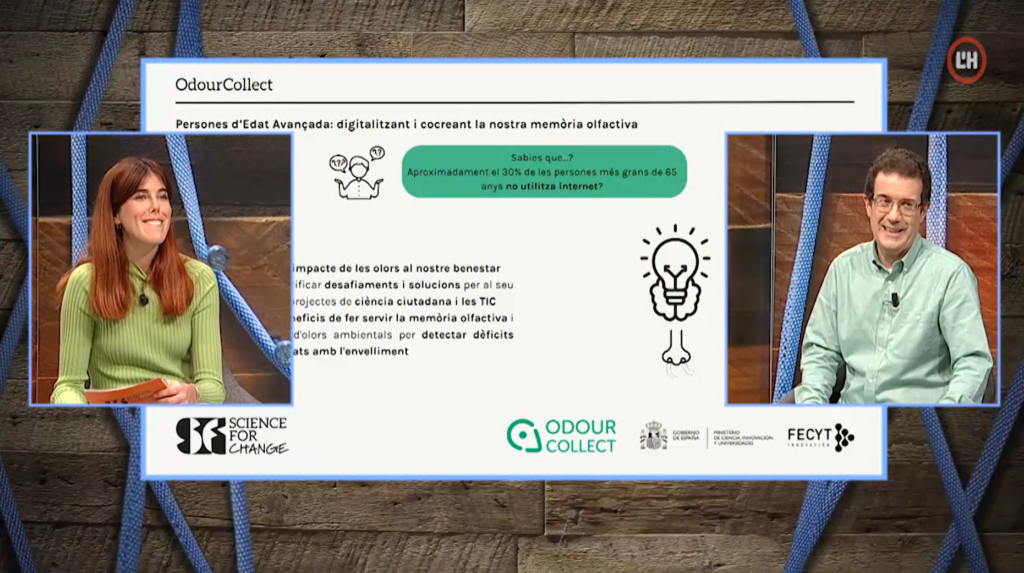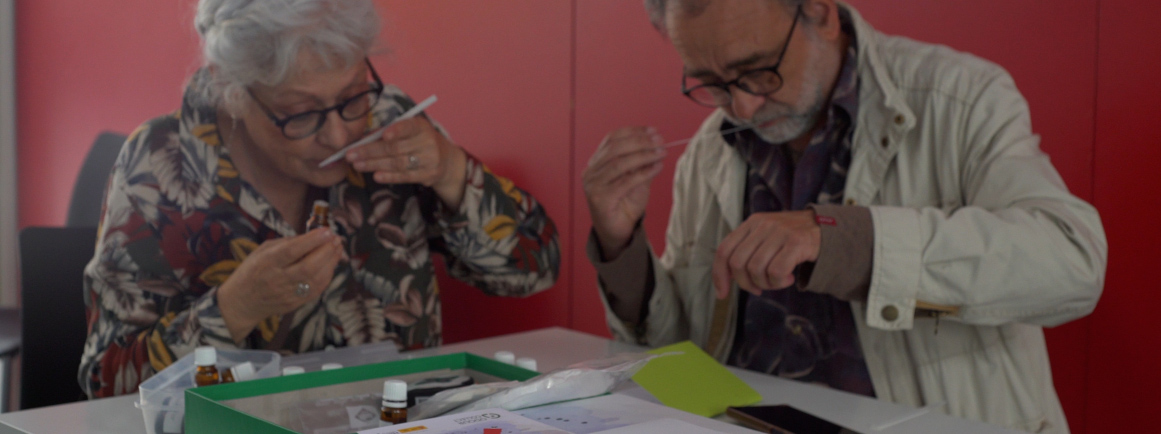
31 de January de 2024
Science is for everyone
Science is not universally accessible. Historically, certain groups have faced barriers preventing their engagement or interest in scientific pursuits. Addressing this inequality is possible, and citizen science allows for the promotion of equitable participation in science. In the television program "Veïns" in the section "Science with you" where we contribute on a quarterly basis, we have talked about how to address the invisible barrier to access to science.
Citizen science makes it easier for groups that, traditionally, do not have access to or interest in science, to get involved, making it more inclusive and democratic. It is important to address these inequalities to promote equitable participation in science and ensure that all people have access to science and can benefit from scientific advances. The promotion of diversity and inclusion in science is essential to overcome this barrier.
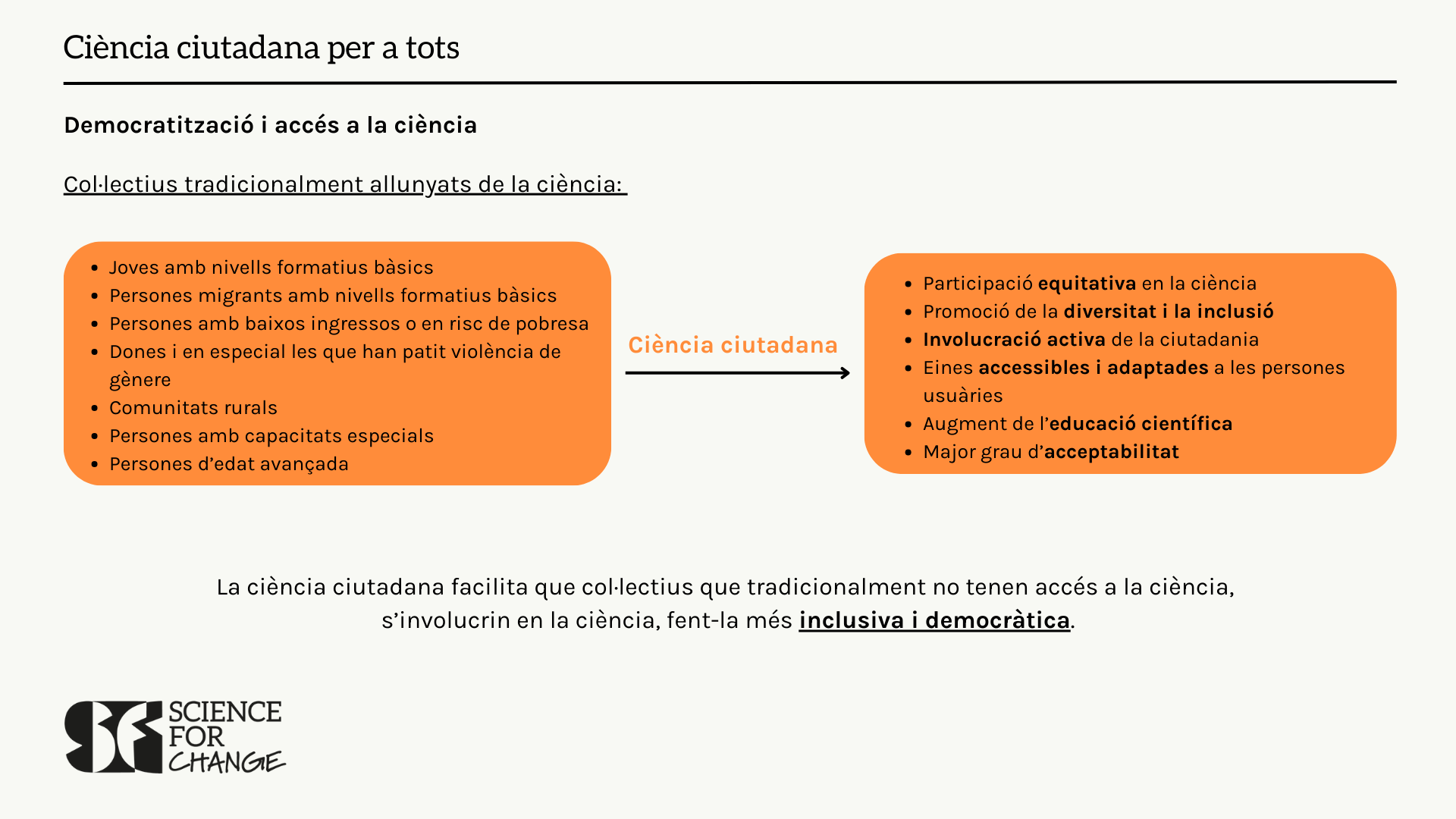
Citizen science for the democratization of science
Through citizen science, everyone can contribute unique and valuable scientific knowledge and participate in scientific projects. How? Collecting data and analysing it, participating in co-creation sessions to address common challenges and provide creative solutions, with a greater degree of inclusion, helping to develop “friendly” applications adapted to the users…
In Science For Change, we seek a paradigm shift that allows the democratization of science through the real, active and inclusive participation of society in the generation of knowledge.
Specifically, speaking of this type of group traditionally more distant from science, at Science For Change, we are committed to empowering the elders in the use of Information and Communication Technologies (ICT) and guaranteeing access and their participation in science.
The generational gap and lack of familiarity with science and technology can sometimes exclude older people from accessing up-to-date scientific information. And everyone has the right to access the training and resources necessary to make the most of the digital age.
Specifically, during the TV program “Ciència amb tu” we talked about two citizen science projects in which we worked with elder people, so that they contribute their experience and knowledge first-hand.
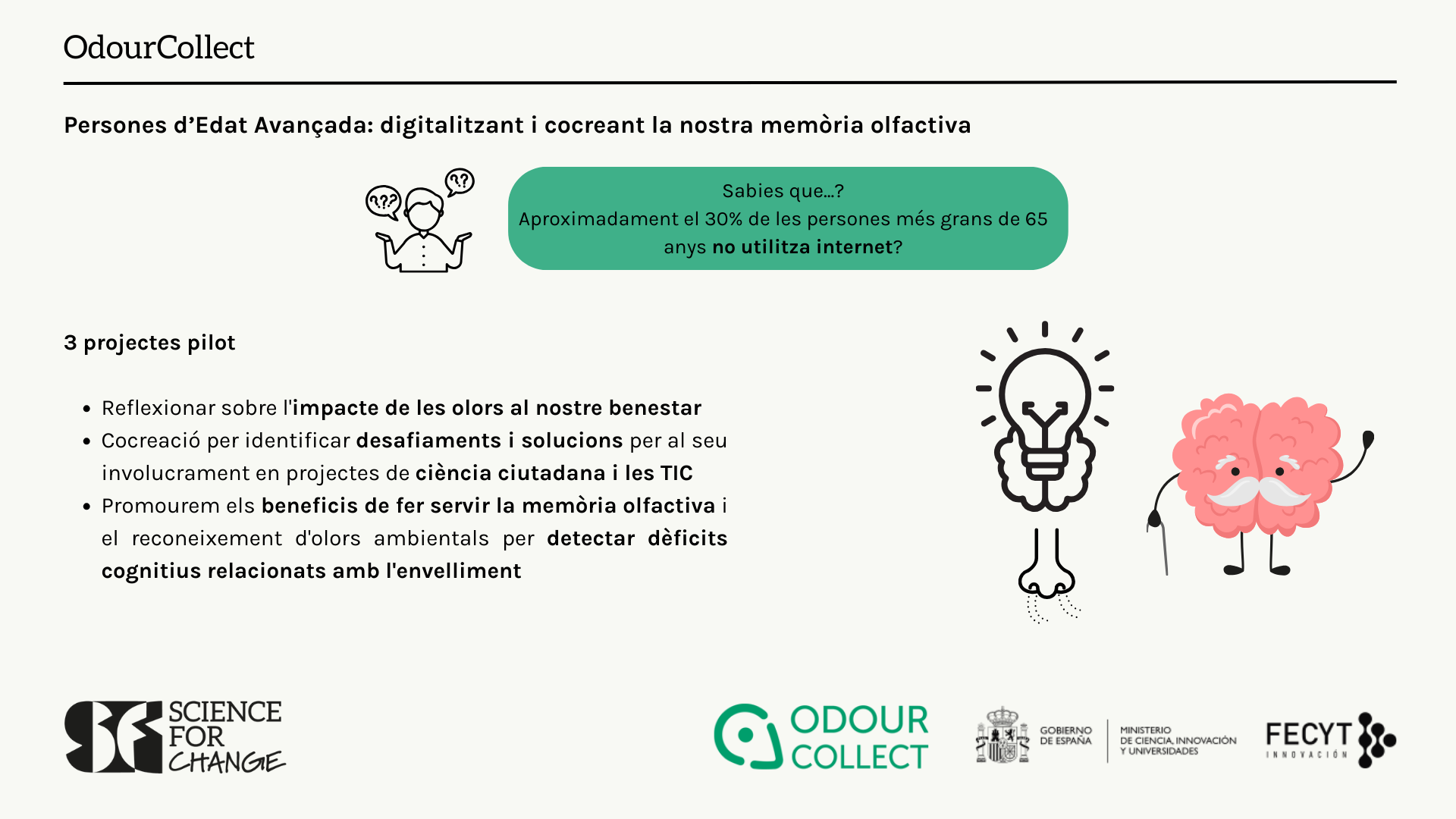
On the one hand, we have collaborated with Bages Ciudadana, an initiative of the Fundación Universitaria del Bages to develop citizen science projects within the framework of its shared health and social agenda. The project “Bages Citizen Science: a participatory approach to face the challenges of ageing in rural environments” with the objective of promoting a model of collaborative participation of citizen science, to obtain research data and a subsequent proposal of solutions focused on addressing the problems and needs associated with ageing in rural environments.
And, on the other hand, we are now starting a project in collaboration with the Spanish Foundation for Science and Technology (FECYT) through OdourCollect called “Elder people and the digitalization and co-creation of our olfactory memory“.
One of the objectives is to give visibility to the olfactory memory through art and to promote the use of ICT in an inclusive way. We will carry out 3 pilot projects in which we will generate dialogue spaces to reflect on the impact of smells on our well-being, we will build co-creation spaces to identify challenges and solutions to involve the elderly in citizen science projects, and we will promote the benefits use the olfactory memory to detect subtle cognitive deficits related to ageing. At the end of each pilot we will jointly design with the participants, exhibition objects that will narrate their personal experiences.
We talked about this in the last program, available here:
Entradas anteriores
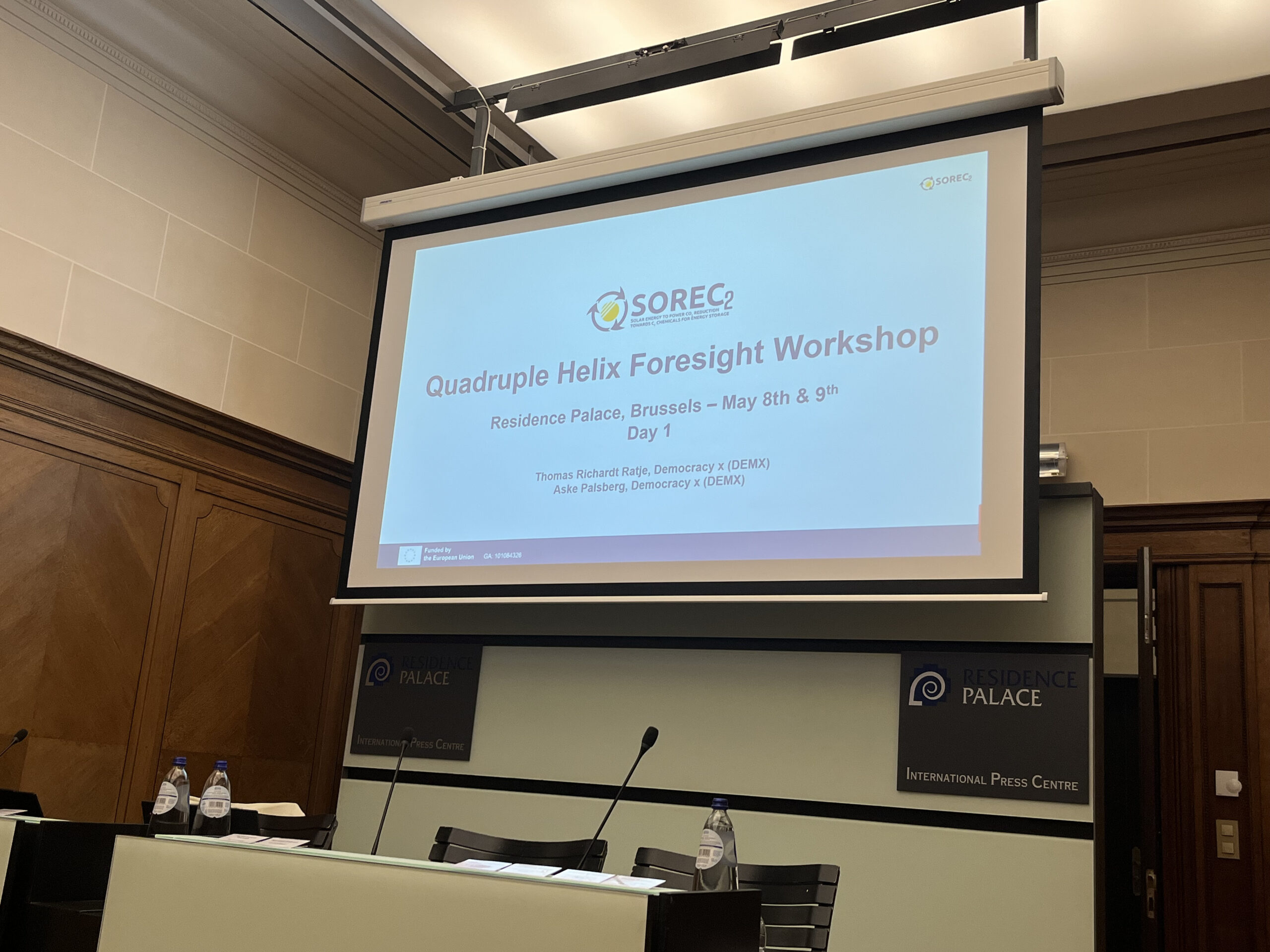
Brussels Workshop Gathers Experts to Shape the Future of Photo-Electrochemical Cells
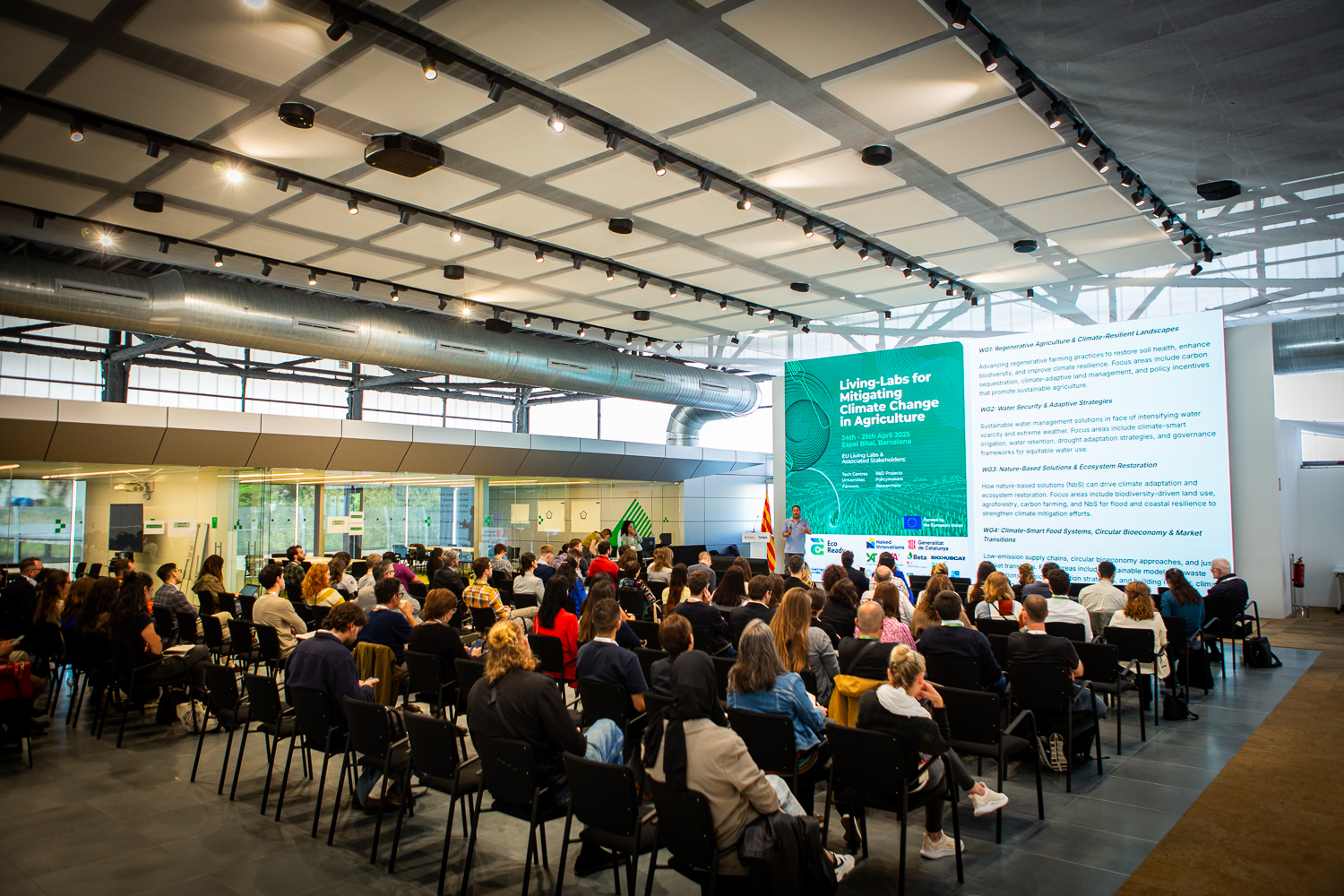
SFC Showcases Citizen Science Solutions for Climate-Resilient Agriculture at EU Living Labs Conference
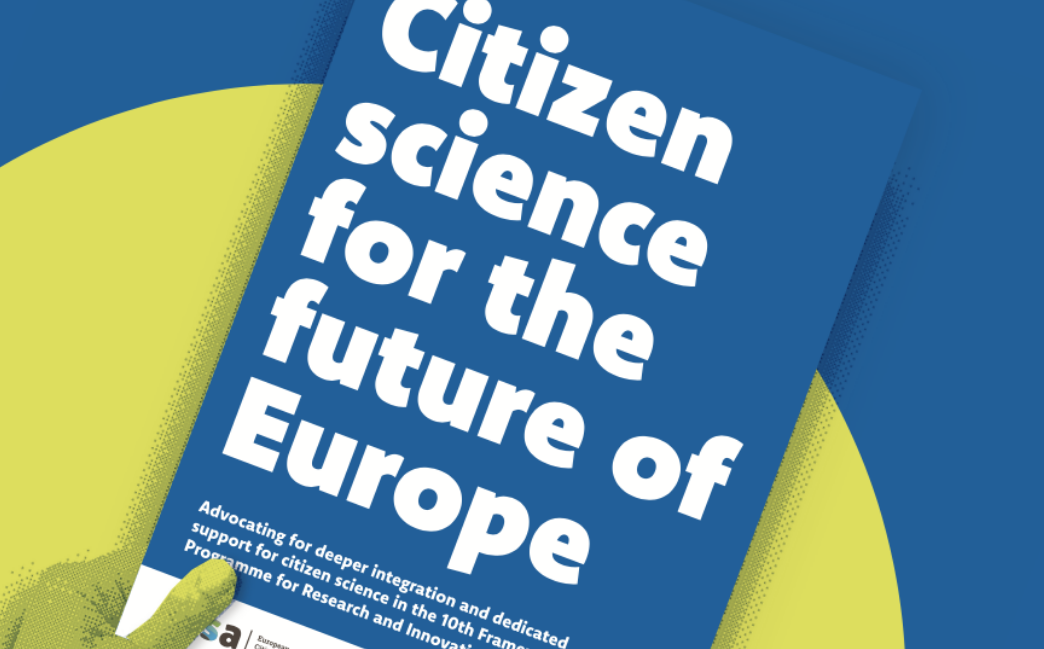
Position Paper Launch: Citizen Science for the Future of Europe – advocating for deeper integration and dedicated support for citizen science in the 10th Framework Programme for Research and Innovation (FP10)
